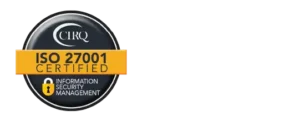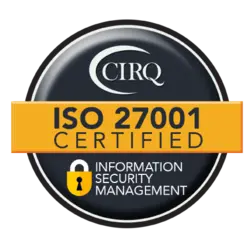The Market Research Conference Circuit: Benefits & Challenges of a Crowded Calendar
There are many different market research conferences to pick and choose from in any given calendar month. What are the pros and cons of so many options?
Inside this Article…
- Introduction
- Why Are There So Many Market Research Conferences?
- Benefits of a Crowded Market Research Conference Calendar
- Challenges of Too Many Market Research Conferences
- How the Insights Industry Can Strike a Balance
- Top Market Research Conferences to Add to Your Calendar
- How to Make the Most of a Market Research Conference
- Summary
When to Let AI Moderate Your Research—and When Not To
AI moderation can be a great way to improve efficiency of your qualitative research. Learn more below. By: Bart Barkosky Date: September 12, 2025...
Closing the Creativity Gap in Research Technology: How AI Enhances Surveys, Diaries, and Interviews
Learn how AI can help boost the creativity of your research technology and earn you better responses. By: OvationMR Research Team Date: September...
Introduction
In any given week, there is an insights or market research conference taking place somewhere in the world. In fact, with over 100 market research conferences every year—that’s more than two every week—we sometimes see events scheduled back-to-back in the same country.
This jam-packed calendar of events can make a big impact for attendees, exhibitors, and conference organizers alike.

The question of the hour is, though: why are there so many insights industry conferences? And how do you choose the right ones to attend or sponsor?
Read on to learn more.
Why Are There So Many Market Research Conferences?
With so many different market research conferences to choose from, is it a boon or a burden to have so many choices? Let’s cover some of the reasons why we see so many different conferences on the annual events calendar.
Wider Range of Topics
The more conferences available, the more variety and diversity market research companies and teams have access to.
This means conferences can focus on a wider range of topics. Instead of just a handful of conferences that focus on overarching themes, events can cover specific niches of the insights industry.
Think conferences catered specifically to topics like user experience (UX), customer experience (CX), innovation, big data, AI, and more. Offering a wider variety can lead to greater specialization and more targeted learning, helping everyone across the industry become even more informed.
More Networking Opportunities
More than that, the more conferences there are, the more networking opportunities arise. Each conference attracts its own melting pot of attendees, enabling industry professionals across the board to cross paths with new faces and gain fresh perspectives from each event.
The larger variety and the deeper specialization provides a different experience that may not emerge in a single large industry event.
Healthy Competition
The jam-packed event calendar creates a bit of healthy competition amongst event holders.
Each conference carries its own set of costs (i.e., travel, hotel, sponsorship, exhibitor fees), meaning companies must be selective about which events they plan to attend. In addition, with conferences happening nearly every week, it can be difficult for teams to decide which events to attend.
This gives conference planners an incentive to create the best event they possibly can, in order to attract the widest possible range of attendees.

Benefits of a Crowded Market Research Conference Calendar
Even with the time and budget constraints, it can still be beneficial for the insights industry to offer a plethora of options when it comes to conferences and events.
These key benefits arise when there seems to be an endless stream of available conferences:
- Niche Specialization: When conferences focus on specialized topics—from behavioral science to tech-driven analytics—attendees can gain targeted insights and foster deeper discussions on issues that matter most to them. Plus, it can allow researchers to learn more about specific topics within their industry.
- Flexibility for Attendees: If someone can’t attend a spring event, there may be an equally relevant gathering in the summer. This frequency ensures that companies and professionals have multiple opportunities to engage and learn throughout the year.
- Localized Options: Back-to-back events in the same country or region can be a blessing for those who want to attend multiple conferences with fewer travel expenses. For example, if someone is already traveling abroad, they can consolidate their conference schedule into one trip. Or, they may be able to find an event that’s being held close to their home base, making it easier and more affordable to attend.
Challenges of Too Many Market Research Conferences
There are two sides to every coin. While there certainly are benefits to a packed conference calendar, the vast number of choices presents its own set of challenges as well.
Some of the challenges include:
- Splitting the Audience: The market research industry only reaches so far, so we’re seeing the massive event industry split the same pool of attendees, speakers, and sponsors across all of their conferences. This can lead to lower attendance, fewer networking benefits, and a less valuable experience for attendees.
- Diminishing Returns for Exhibitors: Sponsors and exhibitors are relying on foot traffic and engaged visitors. With so many events, these exhibitors have to decide which ones to focus their attention on, and many aren’t seeing a solid return on their investment from any one conference.
- Event Fatigue: Industry professionals who rely on these events, and therefore attend numerous conferences year after year, can easily experience conference fatigue. This leads to less enthusiasm, reduced attention, and burnout, further diminishing the experience. Plus, when every new event claims to be a “must-attend,” the real must-attend events get diluted.
- Higher Organizational Costs: The insights events industry is becoming increasingly competitive, and event organizers have to do more and more to stand out. This means a higher investment in marketing, production, programming, and more. And these expenditures aren’t necessarily leading to higher profits, especially if attendee numbers don’t meet expectations.
How the Insights Industry Can Strike a Balance
If the insights industry wants to overcome these challenges, they need to strike a balance with the events calendar. These three tactics can help organizers ensure that their event is worthwhile, even while the annual calendar becomes more saturated.
Careful Curation
Organizers need to be strategic about their programming, focusing on truly relevant topics and top-tier speakers to differentiate from competing events. It’s not enough to host a basic market research conference with the same panel of speakers.
Instead, organizers need to figure out how they can stand out and be unique. This doesn’t have to be a big to-do with a massive price tag attached. It can simply involve:
- Seeking out new and up-and-coming voices to speak at the event
- Looking to the future and highlighting trends with their topics
- Incorporating more interactive elements into the event, like workshops and Q&As
- Improving networking events so that they’re more engaging and worth attendees’ while
Collaborative Scheduling
Some industry organizers have started discussing ways to coordinate schedules. When two conferences occur in the same region and week, a coordinated approach can help create complementary agendas rather than duplicate offerings.
Essentially, organizers need to work together to create events that complement each other, rather than compete with each other. This will lead to improved events across the board.
Offering Real Value
Conferences that offer solid educational sessions, timely industry insights, and excellent networking opportunities stand the best chance of attracting a robust crowd despite the crowded schedule.
Don’t put out the same tired event schedule with the same talking points year after year. Come up with revolutionary ideas that inspire attendees and make your event the talk of the industry.

Top Market Research Conferences to Add to Your Calendar
Which market research conferences are worth your while? Here are a few of the top insights industry events to add to your calendar.
- Quirk’s: Quirk’s hosts multiple conferences and trade shows across the world each year, filled with fun and informational sessions about a number of market research topics.
- Market Research Society (MRS): The MRS also hosts multiple events each year, each one focusing on a different topic within the market research industry.
- TMRE by Informa: TMRE is an annual educational event hosted by Informa Connect that focuses on big brands and what they’re doing in the industry.
- QRCA: QRCA is an event focusing on qualitative research and its role in the insights industry.
- QUAL360: This is another qualitative-centric event that helps researchers discover the latest qualitative market research trends and innovations.
- Ignite by Insights Association: Ignite is a twice-annual conference that focuses on a different topic or niche within the industry for each event.
- AAPOR: The AAPOR hosts an annual conference that has a different theme each year, but typically focuses on social, academic, and political research.
How to Make the Most of a Market Research Conference
As an attendee (or a sponsor), you also have to pick and choose which conferences are going to be the most valuable for your business. Once you’ve selected your top picks and are getting ready to attend, keep these tips in mind for making the most of your time there:
- Review the agenda ahead of time so you can prioritize your top events.
- Research the speakers in advance so you know which will be most relevant to your business.
- Actively attend sessions, engage in discussions, and take notes.
- Network throughout so you can meet new people and learn from them.
- Participate in social events to meet even more attendees (and also to have a good time).
- Stay flexible and don’t be afraid to adjust your initial plan or schedule in case events or invitations pop up.
- After the event is over, follow up with any leads you obtained and apply what you learned to make sure the conference was worth it.
Final Takeaway
The busyness of the market research conference calendar brings both opportunities and challenges. On one hand, it creates more specialized platforms for networking and learning; on the other, the sheer volume of events stretches budgets and can dilute quality.
For conference organizers, standing out in a saturated market demands careful planning, relevant content, and unique attendee experiences. For attendees and exhibitors, prioritizing events that deliver focused value is key.
Ultimately, success in such a crowded space hinges on quality over quantity—conferences that prioritize thought leadership, practical application, and meaningful interactions are the ones that will thrive, even among the packed calendar of events that blanket the industry each year.





